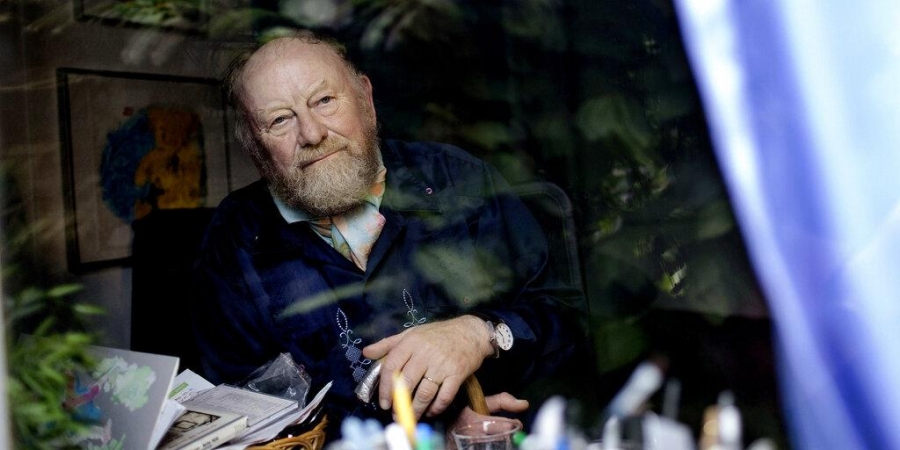 HELSINKI: Danish cartoonist Kurt Westergaard, whose image of the Prophet Muhammad wearing a bomb as a turban was at the center of widespread anti-Danish anger in the Muslim world in the mid-2000s, has died.
HELSINKI: Danish cartoonist Kurt Westergaard, whose image of the Prophet Muhammad wearing a bomb as a turban was at the center of widespread anti-Danish anger in the Muslim world in the mid-2000s, has died.
He was 86.
Westergaard’s family announced his death to Danish media late Sunday and told the newspaper Berlingske that Westergaard died in his sleep after a long period of illness.
Danish media reported that he died July 14, a day after his birthday.
From the early 1980s, Westergaard worked as a cartoonist for Jyllands-Posten, one of Denmark’s leading newspapers, and was associated with the daily until he turned 75.
Westergaard became known worldwide in 2005 for his controversial depiction of the Prophet Muhammad in Jyllands-Posten, which published 12 editorial cartoons of the principal figure of Islam.
Muslims consider images of the prophet to be sacrilegious and encouraging idolatry.
The images, particularly Westergaard’s, sparked a huge wave of anger in the Muslim world and escalated into violent anti-Denmark protests by Muslims worldwide in 2006.
Several newspapers in neighbouring Norway also published the controversial cartoons.
Danish and Norwegian embassies in Syria were burned down by angry crowds during the demonstrations.
Political observers in the Nordic countries have described the cartoon incident as one of the most severe foreign policy crises for both Denmark and Norway in their recent histories.
In the aftermath of the uproar, Westergaard received several death threats and was forced to have police protection.
In 2008, three people were arrested for planning to kill him, and in 2010 a 28-year-old Somali man broke into his home with an ax and knife.
The man was later sentenced to 10 years in prison.
“I would like to be remembered as the one who struck a blow for the freedom of expression. But there’s no doubt that there are some who will instead remember me as a Satan who insulted the religion of over 1 billion people,” Westergaard said, according to Berlingske.
Jyllands-Posten said in an editorial published Monday that with the death of Westergaard “it is more important than ever to emphasize that the struggle for freedom of expression, which became his destiny, is the struggle of all of us for freedom.”
Westergaard is survived by his wife and five children, 10 grandchildren and one great-grandchild.
Funeral arrangements were not immediately known.





